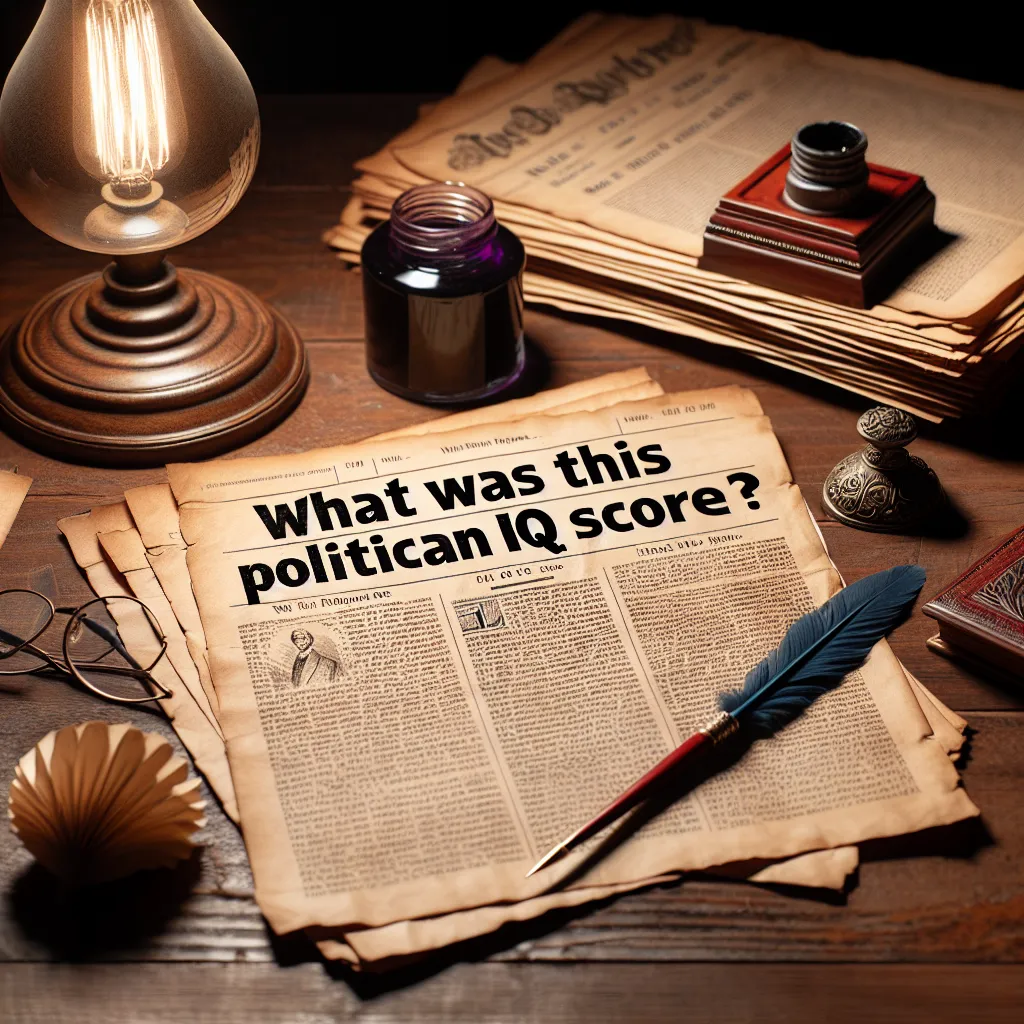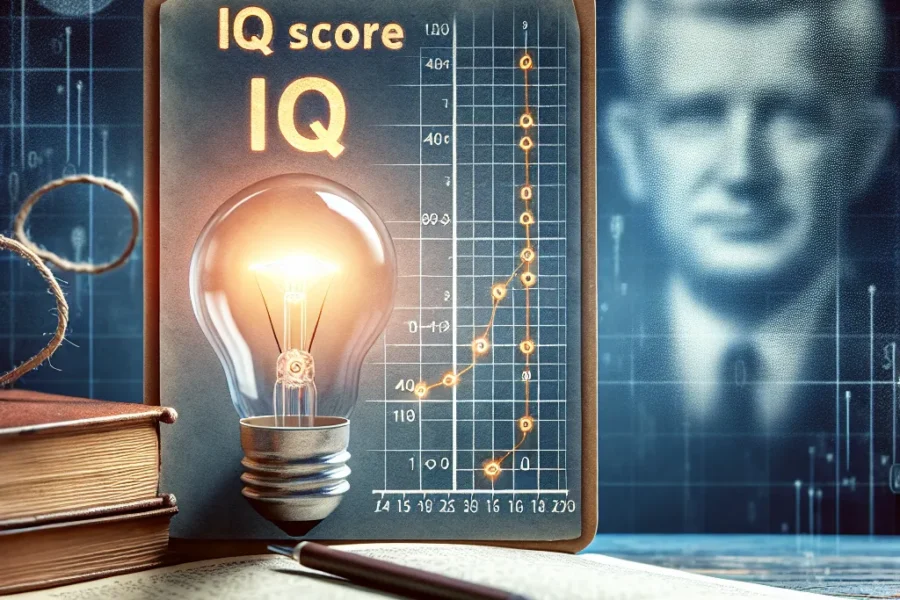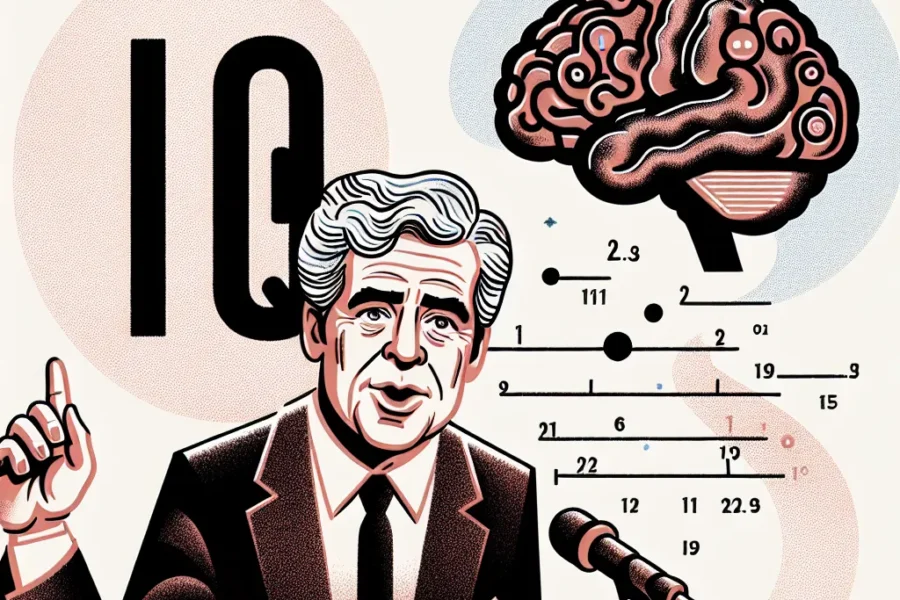George Herbert Walker Bush, the 41st President of the United States, served from 1989 to 1993. The intelligence and capabilities of world leaders often cast a spotlight on their lives and legacies, and George H. W. Bush is no exception. This raises a fascinating question: What was George H. W. Bush’s IQ score, and how does it reflect on his accomplishments, leadership style, and general intellect?
If you are looking for legitimate IQ Tests which pass the entry bar for Mensa, see our IQ Tests.
The intrigue surrounding a public figure’s IQ score is not new. IQ, or Intelligence Quotient, is a measure designed to quantify intellectual ability by assessing a range of cognitive skills. For many, the idea of measuring a President’s IQ offers insight into their decision-making processes, crisis management abilities, and leadership skills.
First, let’s delve into the concept of IQ and its applicability to someone like George H. W. Bush. IQ scores are typically derived from standardized tests that measure a variety of intellectual domains, including logical reasoning, mathematical skills, language abilities, and spatial relations. Scores around 100 are considered average, while scores above 130 are often classified as gifted.
Unfortunately, there are no publicly confirmed official records or documented evidence that explicitly states George H. W. Bush’s IQ score. The privacy regarding personal intellectual assessment results is typically preserved, especially when it comes to notable public figures. However, we can gather clues about his intellectual capabilities based on his education, career, and the opinions of those who knew him best.
George H. W. Bush attended some of the most prestigious institutions in the United States, which implies a high level of intelligence and academic capability. Born into a prominent family, he attended Phillips Academy in Andover, Massachusetts, a highly selective preparatory school known for producing many influential leaders. Bush’s performance at Phillips Academy was noteworthy; he was the captain of the baseball and soccer teams and a member of the student council.
After graduating from Phillips Academy in 1942, Bush enlisted in the United States Navy to serve in World War II, becoming one of the youngest aviators in Navy history at the age of 18. His military service was marked by valor and dedication, earning him the Distinguished Flying Cross for bravery.
Bush’s educational journey continued when he attended Yale University after the war. Yale is synonymous with academic rigor and intellectual excellence. At Yale, Bush excelled academically, and was a member of Phi Beta Kappa, the prestigious academic honor society. He graduated with a Bachelor of Arts degree in economics within just two and a half years, highlighting his intellectual capacity and determination. Further, he was involved in numerous extracurricular activities, including playing as the first baseman for the Yale baseball team, leading them to the College World Series twice.
Reviewing Bush’s extensive post-college career also reinforces his intellectual prowess. Before diving into politics, he ventured into the oil business, establishing Zapata Petroleum Corporation. His ability to navigate the complex world of economics and business is a testament to his high-level cognitive skills.
Bush’s political career began with his election to the U.S. House of Representatives in 1966. Over the years, he held numerous significant positions, including Ambassador to the United Nations, Chairman of the Republican National Committee, Chief of the U.S. Liaison Office in China, and Director of the Central Intelligence Agency. Each of these roles required a profound understanding of international relations, policy-making, and strategic decision-making.
As Vice President under Ronald Reagan, Bush was actively involved in significant policy decisions, including those related to national security, the economy, and foreign affairs. His know-how in these areas showcased a complex and nuanced understanding of both national and global issues.
When Bush became the President in 1989, his term saw several notable achievements that required considerable intelligence and strategic foresight. Handling the end of the Cold War, managing the Gulf War effectively, and overseeing the reunification of Germany are some examples that demanded high-stakes decision-making and intellectual depth.
Bush’s presidency is often assessed through the lens of his diplomatic acumen and ability to steer the country through turbulent times. His ability to forge strong relationships with foreign leaders and manage delicate geopolitical dynamics underscores his intellectual agility and strategic mindset.
In addition to his political life, Bush’s personal endeavors and hobbies also reflect a sharp and inquisitive mind. He was an avid reader and writer, known for his personal correspondences and memoirs, which are articulate and analytically rich. His interests in sports, particularly baseball and fishing, further reveal an active and engaged intellect.
In summary, while we lack a confirmed numerical IQ score for George H. W. Bush, the evidence collected from his prestigious education, significant accomplishments, and the leadership roles he held during his lifetime indicate a person of considerable intelligence. The multifaceted nature of intelligence encompasses more than just an IQ score; it includes emotional intelligence, strategic thinking, and a commitment to lifelong learning—all qualities that George H. W. Bush embodied. For those intrigued by measuring intellectual capacity through standardized tests, an exploration into legitimate and renowned IQ tests might provide a comparative perspective on the kind of cognitive skills prominent leaders like Bush possess.
If you’re keen on understanding or measuring your IQ, see our IQ Tests.



Leave a Comment